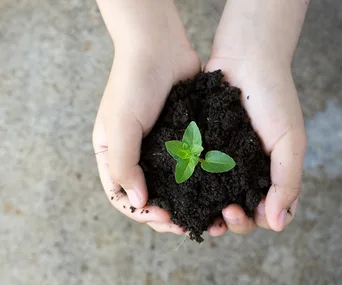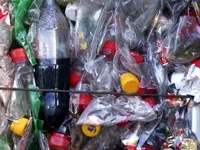It’s hard not to see plastic everywhere we look. From water bottles to lunch boxes and even the food we buy at the supermarkets, it’s everywhere. In fact at the rate we’re going, by 2050 it’s expected that there will be more plastic in the ocean than fish. Now that’s a scary thought.
Plastic-Free July has kicked off with thousands of people around the world, including one of our favourite royals Princess Eugenie, ditching the stuff in an effort to be more environmentally-friendly and if you’re keen to get more green, it’s not as hard as you may think.
“I think initially to change any habit takes effort and awareness but once you’ve made the change, it becomes effortless,” Flannerys Organic & Wholefood Market naturopath Caroline Robertson tells Now To Love.
“It’s about waking up and shifting our priorities to the planet and not just personal, immediate convenience.”
So what are Caroline’s top tips for cutting back on plastic? Keep scrolling to see how you can make a difference, and it won’t cost you extra or make things inconvenient.
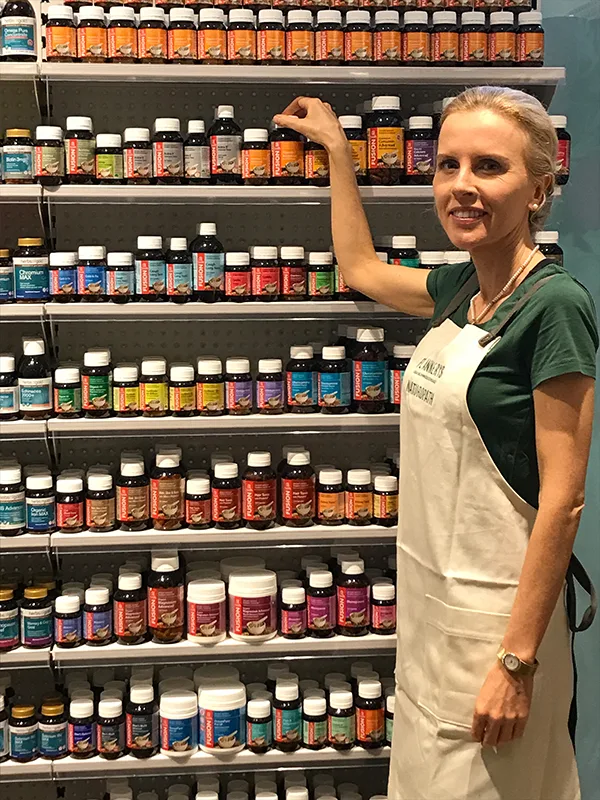
Caroline Robertson tells us some handy hints to help ditch the plastic.
(Image: Supplied)1. Bulk buy when it comes to shopping
Next time you do your grocery shop, ditch the small plastic or netted bags and bring your own bags or just pop them in the trolley. if you’re bringing your own bags, keep a few in your own bag that can be folded up small and pulled out when needed.
“When you bulk buy, you get the quantity and the quality you want,” Caroline says.
“In a netted bag of lemons, there’s bound to be one dodgy one in there and that net is a real killer of marine animals. But when you buy in bulk, you select your own and put it into the basket or bring your own bag.
“I heard a great story the other day of a guy going into a shop and buying everything and putting it into a wheelbarrow and wheeled it home! You don’t have to go that extreme but I love it.”
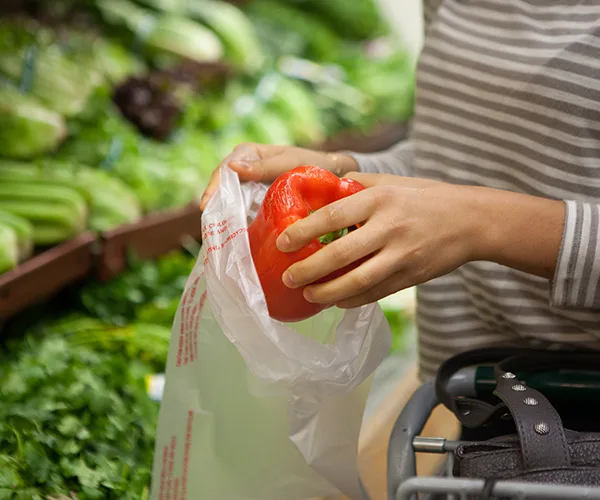
Ditch the small plastic bags and bring your own or just chuck them in the trolley.
(Image: Getty Images)2. Choose glass options
While you’re at the shops, you can also make a difference with the products you buy based on their packaging.
“There might be two honey containers in the supermarket, one in a plastic bottle and another one in a glass bottle so try and go for the glass option,” says Caroline.
And by choosing glass, you’re also helping your health.
“Plastic does leak into food. For example, the enzymes in honey will start to break down that plastic, it’s only very minimal, trace amounts but that accumulates in the body.”
Studies have shown that the chemicals in plastic act as foreign oestrogen (a female sex hormone) and these chemicals can disrupt the body’s natural hormone system, creating hormone imbalances that have been linked to health conditions including breast cancer.
3. Invest in a water filter
It may be a healthier alternative to soft drinks, but if you’re buying bottled water on the reg, it’s not doing much to help the planet.
There are heaps of stainless steel and glass water reusable bottles out there that won’t break the bank and in the long-run will actually save you money.
“If you’re concerned about water quality, use a water filter – otherwise get organised and fill up your stainless-steel bottles,” Caroline says.
There are plenty of fashionable and environmentally-friendly metal water bottle options out there.
(Image: Instagram @swellbottle)4. Hoo roo for bamboo!
This material is not only biodegradable, but bamboo plants also grow quickly, need little care and they don’t require fertiliser or pesticides to flourish.
Bamboo toothbrushes have taken the world by storm as a more environmentally-friendly alternative to plastic ones, but did you know that there are bamboo (and metal) straws out there too?
Caroline suggests recommends not only bamboo toothbrushes and straws but also suggests stocking your bathroom with bamboo cotton tips.
5. Swap clingwrap for beeswax
Single use plastic isn’t just limited to those bags in the supermarket and plastic water bottles.
If you find yourself covering your leftovers with clingwrap every night, beeswax wraps are a great alternative. They’ll keep your food fresh, they’re reusable and can they be refreshed if the wax starts to wear.
“Otherwise, you can put food in glass or stainless steels containers in the fridge with lids on them,” Caroline suggests.
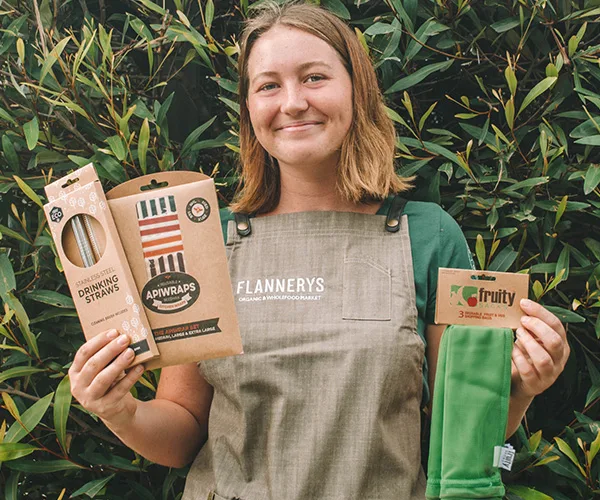
You can stock up on beeswax wraps, metal straws and reusable shopping bags at Flannery’s.
(Image: Supplied)6. Ask around
They say that one person can change the world, and you can be that person.
“If you frequent anywhere as a shopper, make sure that they’re looking at the best environmental options,” says Caroline.
“If there’s somewhere that you regularly shop, they’re going to value your opinion and certainly let them know that it’s not on to continue using these non-compostable materials or environmentally harmful materials.”
7. Pick up your mess (and other’s)
Plastic-Free July isn’t just about you and your personal use of plastic, it’s also about helping the world around you. So next time you’re at the beach and see a wrapper floating near the water, pick it up.
“If we do see plastic rubbish around then we should make sure that it won’t be swallowed by animals or get into the oceans,” says Caroline.
“By 2050 there will be more plastic than fish in the ocean and though we may not have created that rubbish, I think if we see it, it’s our responsibility to protect animals.”
WATCH: The impact of plastic on the satin bower bird. Post continues after video…
